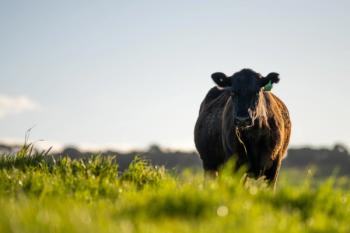
New grant supports research on the link between small animal adoption and human well-being
The Human Animal Bond Research Institute awarded the funds to a team of investigators in the United Kingdom
A new grant from the Human Animal Bond Research Institute (HABRI) is supporting research on how adoption of certain small animals affects the well-being of pet owners. A team of investigators at the University of Liverpool in the United Kingdom (UK) was named the recipients of grant.1
The human-animal bond between pets and their owners has proven benefits that include reduced anxiety and stress, lower blood pressure and decreased risk of heart disease, allergy prevention in children, support for children with autism and veterans with post-traumatic stress disorder. In recognition of the importance of such bonds, HABRI provides a Human-Animal Bond Certification program in partnership with the American Veterinary Medical Association and the North American Veterinary Community.2
Much of the current research surrounding the human-animal bond is focused on canines and felines, according to Carri Westgarth, PhD, MPH, BSc, the principal investigator of the planned UK study and chair in human-animal interaction at the University of Liverpool. The new study will instead focus on the human-animal bond of pet owners with rabbits, guinea pigs, hamsters, rats, and mice, an area that has a less developed evidence base, Westgarth noted. “Our research will help uncover the impact of owning small, furry pets and the experiences people have adopting them from shelters, which we hope will help shelters guide and support successful small pet adoptions,” Westgarth said in a news release.1
“Human-animal bond research should include all pet species,” Steven Feldman, MPS, president of HABRI, based in Washington, DC, said in a news release.1 “HABRI is proud to support research to document the benefits of rabbits, guinea pigs, and other small pets for human health and wellbeing.”
Investigators will rely on surveys to evaluate any mental and physical changes to the human participants’ well-being following adoption of these small animals from a shelter. Furthermore, investigators expect to conduct interviews with owners of these pet species to gain deeper insight into the human-animal bond and the pet adoption process.1
The study is divided into 2 parts. In part 1, investigators plan to conduct in-depth, face-to-face interviews with 30 pet owners. Their perceptions and experiences of owning a small pet will be examined with a focus on human well-being. In part 2, investigators will conduct a longitudinal cohort study of 450 pet owners who have newly adopted animals from Woodgreen Pets Charity based in Godmanchester, England, and from other shelters. Follow-ups with participants at 1-month, 3-month, and 6-month intervals will track how the human-animal bond develops over time and measure changes in owners’ psychological, social, and physical health. Investigators anticipate seeing positive changes in health outcomes following the small shelter pets adoptions.1
“This new research will shine a much-needed spotlight on the benefits of owning a small pet and the unique bonds people form with them,” Fiona Cooke, PhD, MSc, MBA, MA, BSc, head of specialist services at Woodgreen Pets Charity, said in the news release.1 “This study will not only improve support for people adopting small pets from charities like Woodgreen, but will also aid our work to keep more pets in loving homes.”
HABRI supports various scientific research projects about the connection between humans and animals. These projects include focuses on healthy aging, workplace wellness, social isolation, mental health conditions, and medical conditions such as cancer, allergies and cardiovascular health.3
A grant announced in December 2024 also supports a study at the University of Surrey in the UK that is investigating the use of artificial intelligence for collecting and analyzing data. Investigators will apply methods of machine learning and data analytics, along with human cohort research data, to gain knowledge about the human-animal bond. “This project has the potential to provide valuable longitudinal data about the benefits of pet ownership and the importance of supporting the human-animal bond as a matter of public health,” Feldman said in a news release.4
References
- New research to examine role of small pets on human wellbeing. News release. Human Animal Bond Research Institute. January 6, 2024. Accessed January 6, 2025.
https://www.prnewswire.com/news-releases/new-research-to-examine-role-of-small-pets-on-human-wellbeing-302341934.html - Human-animal bond certification. American Veterinary Medical Association. Accessed January 6, 2025.
https://www.avma.org/resources-tools/one-health/human-animal-bond/human-animal-bond-certificate - Research. Human Animal Bond Research Institute. Accessed January 6, 2025.
https://habri.org/ - The Human Animal Bond Research Institute awards grant to The University of Surrey. News release. Human Animal Bond Research Institute. December 9, 2024. Accessed January 6, 2025.
https://habri.org/pressroom/20241209
Newsletter
From exam room tips to practice management insights, get trusted veterinary news delivered straight to your inbox—subscribe to dvm360.





